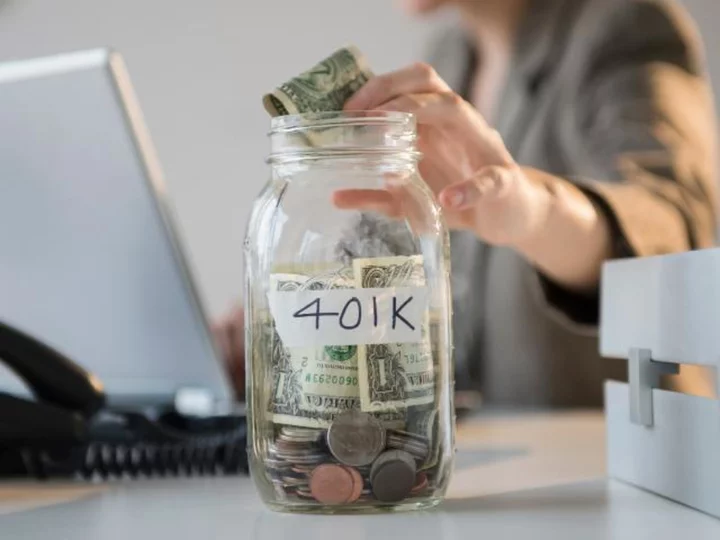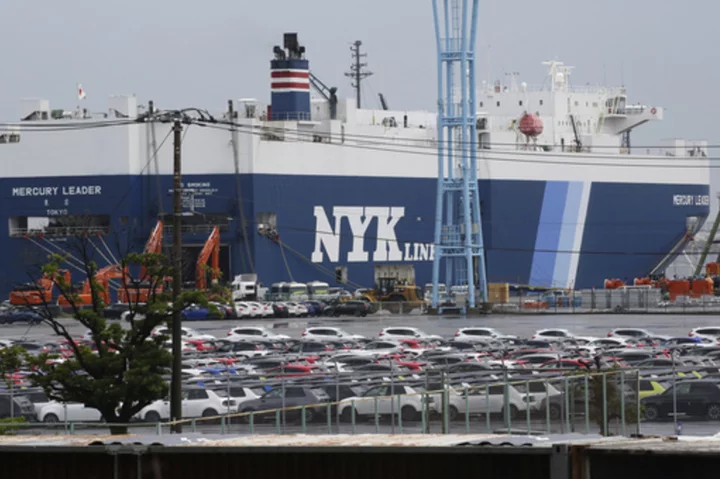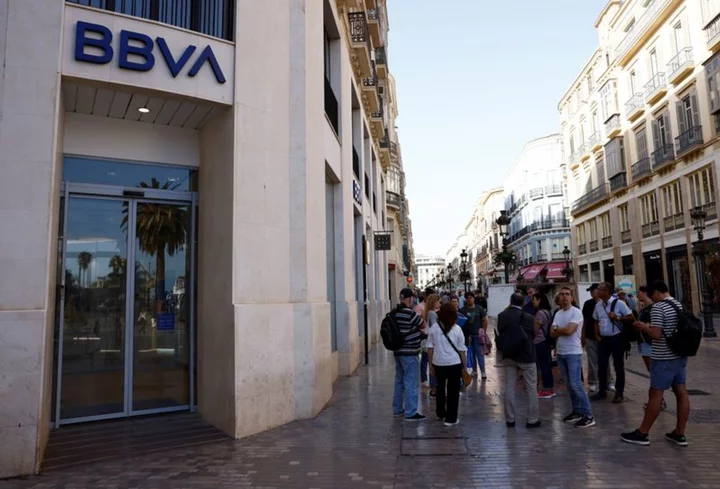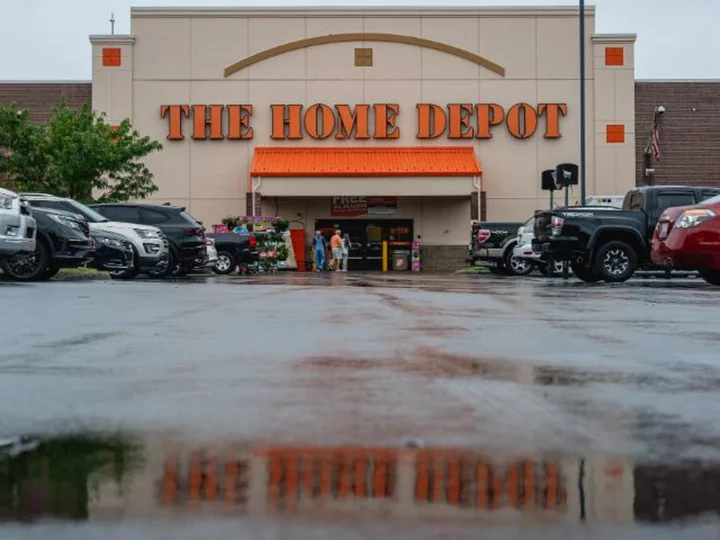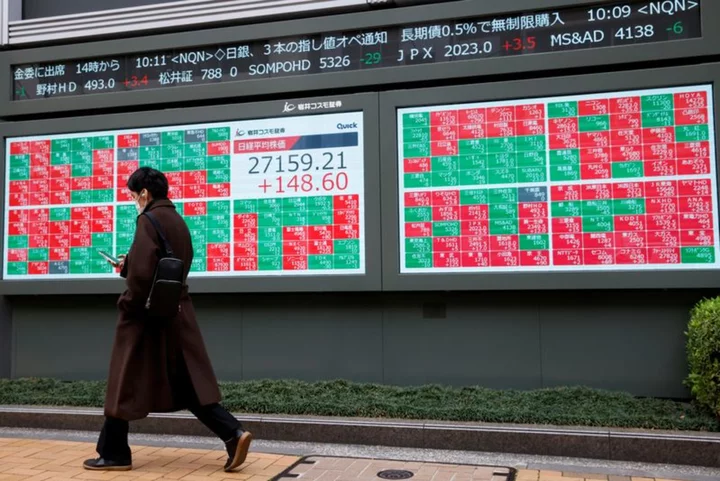More Americans than ever are saving for retirement and more than ever they are doing that by investing in 401(k) plans.
That's helped usher in a fundamental change to the investing landscape: Power on Wall Street has consolidated among the four largest asset managers of these plans — BlackRock, Vanguard Group, Fidelity Investments and State Street Global Advisors.
What's happening: Vanguard's annual report on its five million 401(k) clients shows that participation in the plan has reached an all-time high.
That comes as more employers automatically enroll workers into these plans. The adoption of automatic enrollment has more than tripled since the end of 2007, said Vanguard.
Participation is likely to continue to skyrocket in 2023 as the SECURE Act 2.0 goes into effect. The bill, signed into law late last year, requires employers to automatically enroll all eligible workers into their retirement plans at a savings rate of 3% of salary.
"For many American workers, the funds that they have to invest are largely through their retirement plan," said Dave Stinnett, head of strategic retirement consulting at Vanguard.
A quick history: Retirement savings in the United States were long thought of as a three-legged stool. Americans had pension plans, Social Security benefits, and their own savings through plans like the 401(k). Not any more.
Pension plans are nearly extinct. About half of private sector workers were covered by those so-called defined-benefit plans in the mid-1980s, but by 2021 only 15% of private sector workers had them.
Social Security payments still provide about 90% of income for a quarter of older adults, according to Social Security Agency surveys. But the Social Security trust fund is facing a 75-year deficit, and without intervention it will be depleted by the mid-2030s. Lawmakers have faced a decades-long political stalemate on how to fix it.
What's left is the 401(k), which 68% of private industry workers have access to.
How big is big: Vanguard's report shows increasing sums of money are being invested in funds meant to grow retirement savings over a specific period of time. Those funds tend to be controlled by large asset managers.
And for large, read massive. Blackrock has about $9 trillion under management. Vanguard has $7.2 trillion. Fidelity has $4.2 trillion and State Street has $3.5 trillion. Together, these four companies manage assets worth 65% of the combined value of the shares in the S&P 500.
Vanguard is the number one owner of two-thirds of S&P 500 stocks, according to an Investor's Business Daily analysis.
That's expected to grow as 401(k)s become the primary tool for retirement saving. Research by the Boston University School of Law shows that these companies could control more than 40% of all shareholder votes in the S&P 500 within the next twenty years.
Why it matters: When you own shares of a company's stock, you become a shareholder or part-owner of that company. As a shareholder, you have certain rights and privileges, and one of those is the right to vote on certain matters related to the company's operations. Shareholder voting gives investors a voice in important company matters and influences the company's actions and direction.
But through a process called proxy voting, large asset managers are able to vote on shareholder resolutions on behalf of their clients. That means that as firms like BlackRock and Vanguard gain more clients, they also gain more control over their votes.
Some argue that concentrated ownership is bad for the economy at large. This ownership "poses the greatest anticompetitive threat of our time," wrote Einer Elhauge, of Harvard Law School.
Asset managers have "significant influence over company practices," wrote shareholder advocacy group ShareAction in a recent report. "How asset managers vote on company resolutions each year therefore determines the future of our planet."
Last year, those four asset managers supported just 20% of environmental and social resolutions, down from 32% in 2021, ShareAction found.
Tesla soars, but is it more of an AI or EV story?
US stocks fell for a second consecutive trading session on Tuesday as investors mulled over the health of the economy. But investors didn't appear to be worried about Tesla. Shares of the electric vehicle company closed more than 5% higher and are up about 154% so far this year.
There's no question that the automaker is defying gravity. But there is the question of why shares are doing so well.
Analysts at Vanda Research, a market data firm, say that investors aren't buying Tesla because they want to invest in electric vehicles, instead they perceive Tesla as a proxy for artificial intelligence.
Combined purchases by retail traders of EV stocks excluding Tesla are only the equivalent of about 6% of Tesla's average daily flow, they found. That's a stark contrast to late 2020 and early 2021, when investors were piling into the EV sector. Today's average flow into electric vehicle stocks (excluding Tesla) are just 5% to 10% of what they were back then.
The cardboard box indicator
US supply chains are recovering from their pandemic-induced kinks — just in time for a potential recession and falling demand for goods.
One key indicator of that demand is flashing warning signs: cardboard box sales are falling.
"Sales of cardboard boxes have been declining over the past year, reflecting the ongoing weakness in the goods part of the economy," wrote Torsten Slok, chief economist at Apollo Global Management. His research shows that sales of boxes dropped by more than 10% in December of 2022 over the same period the year prior.
Nearly every package Americans order to their door shows up encased in cardboard. If there's less demand for those boxes, it could mean that retailers are preparing for fewer sales.

